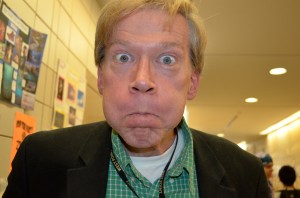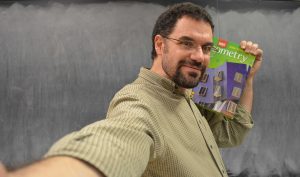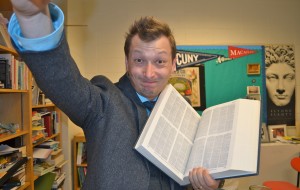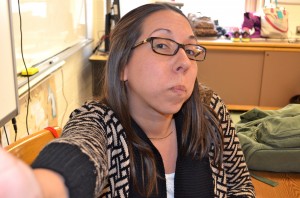



 Ducks, blowfish, and backhanded peace signs. Though seemingly unrelated, these three things share a common trait: they are each the basis for a different kind of “selfie,” the type of photograph that has been named Oxford English Dictionary’s word of the year.
Ducks, blowfish, and backhanded peace signs. Though seemingly unrelated, these three things share a common trait: they are each the basis for a different kind of “selfie,” the type of photograph that has been named Oxford English Dictionary’s word of the year.
Chosen out of a pool of finalists, which included words such as “showrooming,” “schmeat,” “bitcoin,” “olinguito,” “bedroom tax,” “binge-watch,” and, of course, “twerk,” “selfie” will now be added to the OED.
Though the word may seem too fad-oriented for something like the OED, many Harrisites considered the addition of “selfie” and words like it to be natural and part of the evolution of the English language.
“I bet the first time someone said “hot dog” it sounded stupid,” said Assistant Principal of Humanities Rafal Olechowski, “and now we don’t really think of it as stupid. Think about older foods that some of us didn’t even know existed twenty years ago: like chicken masala. And now, if you live in Queens and you don’t know what chicken masala is, you’ve got a problem. And it’s something you must find out because now it’s like 10% of Queens eats chicken tikka masala like once a week.”
Social Studies teacher Alex Wood said that the “English language is constantly evolving and there’s no ruining it.”
Nonetheless, Mr. Wood believes that “the biggest danger is the addition of words that become outdated, words that don’t keep on being used.” He mentions that all words must have a “staying power.” Otherwise, adding them would be useless and impractical.
Students have mixed opinions.
Junior Amanda Lee believes that the words aren’t ruining the English language.
She said that “as a society we associate these words with bad connotations, but a dictionary’s job is just to solely define the word.”
Fellow junior Inderdeep Jaswal agrees, stating: “A word is a word. If it exists, it deserves to be put into the dictionary even if it seems ridiculous or pointless.”
Senior Tahsin Akanda notes that adding such words to the dictionary.
She knows they will be added “to a collection of time and culture-specific jargon which will fall out of use over time as with previously-held neologisms including ‘hobnobbing’ and ‘jeepers.’”
However, some people disagree with the addition of these words.
Freshman Helen Yu said that the word “selfie” “is a little unnecessary because it is describing something that already exists (a picture of yourself) and is more of a slang word.”
She feels that the words the Oxford Dictionary recently added pertain more to the younger generation.
Sophomore Jane Zhang feels that these words “are kind of silly” and doubts that people use the Oxford Dictionary to look up slang.
Sophomore Joyee Mok was shocked to learn that words like “selfie” and “twerk” were added to the dictionary this year.
She believes that “[these words] are okay to use for fun but shouldn’t be used in literature.”
She said that these words should only be used in certain contexts and that “if they get properly accepted into the language they may ruin our language.”
Meanwhile, English teacher Judy Biener stated that although she doesn’t find the concept of “taking a selfie” to be impressive, nor the actual word that riveting, she is “glad that every year dictionaries change to reflect people’s creativity with language.”
Pictured from top to bottom are Mr. O’Malley, Dr. Mazza, Mr. Olechowski, and Ms. Skoda.



























